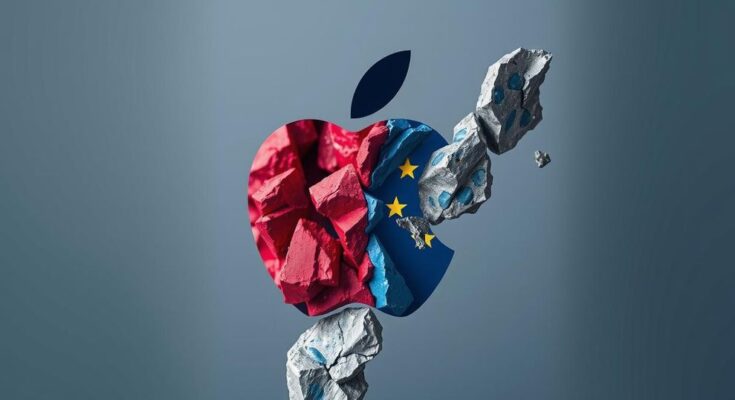The Democratic Republic of Congo has filed criminal complaints against Apple in France and Belgium over alleged use of conflict minerals linked to human rights abuses. Apple disputes these claims and emphasizes its commitment to responsible sourcing. The complaints address severe issues related to the violent exploitation of minerals in the region and the need for corporate accountability.
The Democratic Republic of Congo has initiated criminal complaints against Apple’s subsidiaries in France and Belgium, alleging the use of conflict minerals within its supply chain. These minerals, sourced from Congo, are reported to be linked to severe human rights abuses. Apple has vehemently denied these accusations, asserting its commitment to responsible sourcing and ongoing supplier audits. This complaint highlights the ongoing issues surrounding resource exploitation in regions afflicted by violence and corruption.
Congo’s claims include covering up war crimes and deceptive practices, with a specific emphasis on the detrimental effects of armed groups controlling mineral extraction. The Congolese government contends that large tech companies like Apple may unwittingly participate in a system that allows these abuses to persist. Legal representatives argue that the minerals supplied to tech companies are often misrepresented as ethically sourced due to inadequate certification mechanisms.
The situation in Congo remains dire as the conflict over resources has resulted in widespread civilian suffering and displacement. Competition for valuable minerals such as tin, tantalum, and tungsten is a significant driver of violence in the region, with many armed factions benefiting financially from mining operations. The U.S. State Department has acknowledged concerns about the illicit mineral trade and its role in perpetuating this violence.
Apple has asserted that they take the issue of conflict minerals very seriously, stating that they do not directly source primary minerals and that any minerals used in their products are primarily recycled. They maintain that their network of suppliers is expected to adhere strictly to a code of conduct that prohibits the use of conflict minerals from regions affected by armed conflict.
The legal actions taken by Congo set a precedent, as they represent the first instance of the Congolese state targeting a major technological enterprise for its alleged involvement in human rights abuses through its supply chain. Advocates for accountability emphasize the need for corporations to uphold ethical sourcing standards and support mechanisms that protect vulnerable communities in resource-rich areas.
The Democratic Republic of Congo has been at the center of a long-standing humanitarian crisis fueled by the extraction of minerals like tin, tantalum, and tungsten. These minerals are critical in the manufacturing of electronic devices but are often sourced from regions controlled by armed groups responsible for egregious human rights violations. The alleged complicity of global tech companies in this disturbing reality has drawn increasing scrutiny, prompting legal actions aimed at establishing greater corporate accountability in supply chains.
The criminal complaints filed by the Democratic Republic of Congo against Apple and its subsidiaries underscore the complexities surrounding corporate responsibility and mineral sourcing in conflict-affected regions. As these complaints progress, they may influence broader dialogues on ethical supply chains in the tech industry, highlighting the urgent need for reform in global sourcing practices to protect human rights and promote accountability.
Original Source: www.astroawani.com




